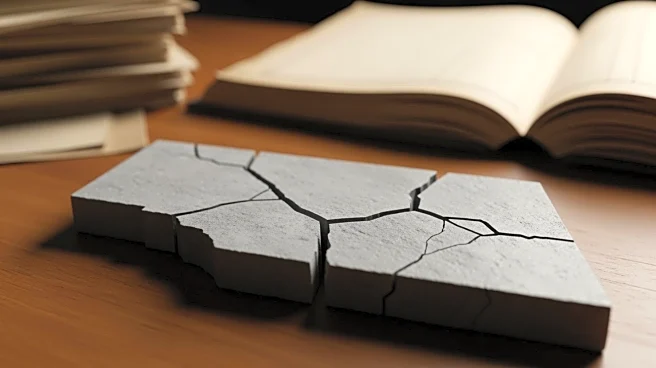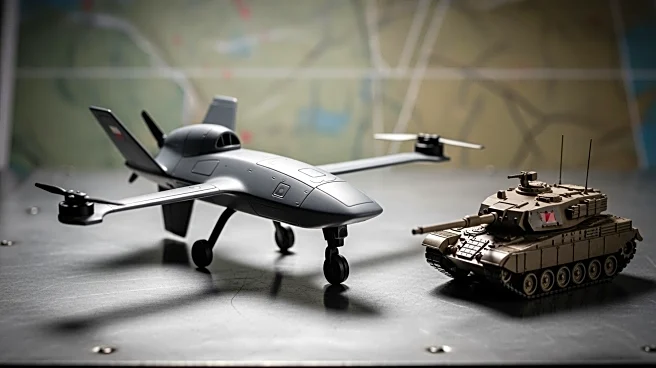What's Happening?
Preparations are underway to increase humanitarian aid to the Gaza Strip following a ceasefire agreement aimed at ending a two-year conflict. The Israeli defense body overseeing aid, COGAT, plans to increase the number of aid trucks entering Gaza to 600 per day. Egypt is contributing 400 trucks loaded with essential supplies, which will be inspected by Israeli forces before entry. The United Nations has prepared 170,000 metric tons of aid, awaiting clearance from Israel. The ceasefire has also led to the dismantling of food distribution sites operated by the Gaza Humanitarian Foundation, an Israeli- and U.S.-backed contractor. The ceasefire agreement includes the release of Israeli hostages and Palestinian prisoners, with President Trump expected to visit Israel to meet with families of hostages.
Why It's Important?
The ceasefire and increased aid efforts are crucial for addressing the humanitarian crisis in Gaza, where expanded Israeli offensives and restrictions have led to severe food shortages and famine. The agreement marks a significant step towards peace, potentially stabilizing the region and reducing tensions that have sparked global protests and regional conflicts. The release of hostages and prisoners could foster goodwill and pave the way for further diplomatic negotiations. However, the long-term governance of Gaza and the future role of Hamas remain unresolved, posing challenges to sustained peace.
What's Next?
The next steps involve the logistical execution of aid delivery and the release of hostages and prisoners. President Trump's visit to Israel and Egypt is expected to bolster diplomatic efforts and facilitate discussions on regional peace. The Israeli military is preparing to dismantle Hamas's tunnel network under Gaza, a move that could impact future security dynamics. The international community will closely monitor the situation to ensure compliance with the ceasefire terms and address any emerging humanitarian needs.
Beyond the Headlines
The ceasefire agreement raises ethical and legal questions about the treatment of hostages and prisoners, as well as the accountability of parties involved in the conflict. The dismantling of the Gaza Humanitarian Foundation's sites highlights the complexities of aid distribution in conflict zones, where political and security considerations often overshadow humanitarian needs. The long-term implications for Gaza's governance and reconstruction efforts will require careful negotiation and international support.









